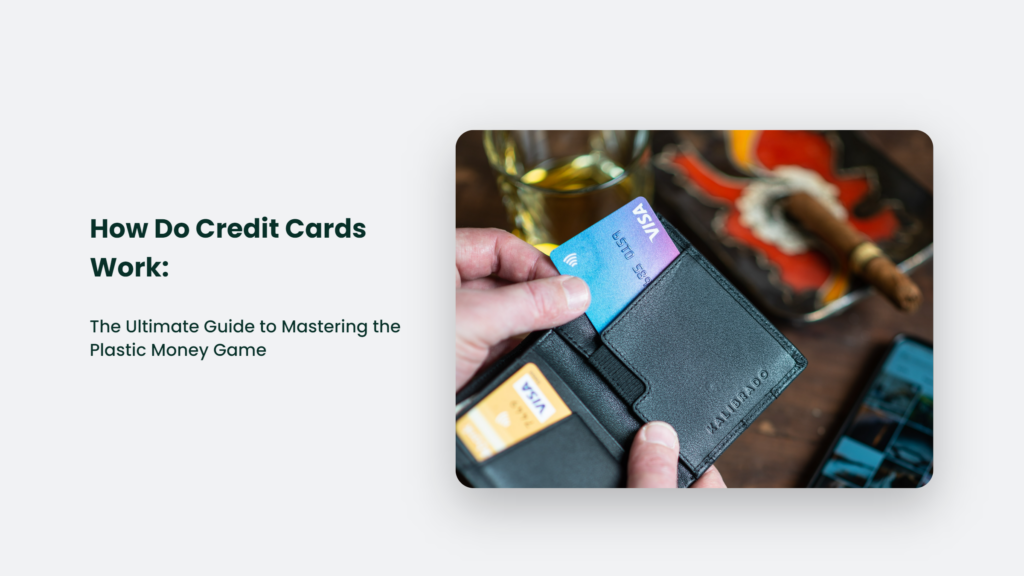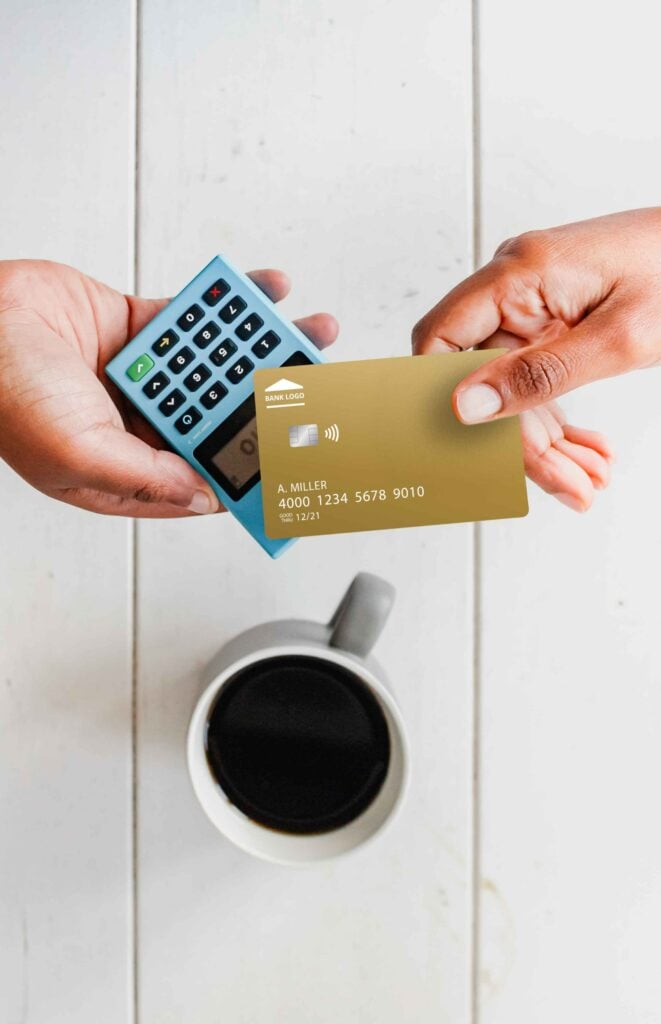Let’s face it; credit cards can be a double-edged sword. On the one hand, they offer convenience, rewards, and a way to build credit. On the other hand, they can lead to debt, stress, and financial chaos if not managed properly.
So, how do credit cards work, and how can you make them work for you? Buckle up because we’re about to dive into the world of plastic money and uncover the secrets to mastering the credit card game.

How do Credit Cards Work: The Basics
A credit card is a short-term loan allowing you to make purchases, pay bills, or withdraw cash up to a predetermined credit limit. When you use a credit card, your card details are sent to the merchant’s bank, which then gets authorization from the credit card network to process the transaction.
There are two main types of credit cards: secured and unsecured. Secured credit cards require a cash deposit to open, which typically doubles as your credit limit.
On the other hand, unsecured credit cards do not require a deposit and are based on your creditworthiness.
Choosing the Right Credit Card
When it comes to choosing the right credit card, there are several factors to consider:
Check your credit score:
Your credit score will determine your eligible credit card types. You can obtain a free credit report from one of the major credit bureaus to understand your credit standing.
Identify the type of credit card you need:
There are various credit cards, such as cashback, travel rewards, and secured credit cards. Consider your spending habits and financial goals to determine which card type best suits your needs.
Compare credit cards:
Look for cards with low-interest rates, no annual fees, and rewards that align with your spending habits. You can use online comparison tools to help you evaluate different credit cards based on their features and benefits.
Apply for the card that best suits your needs and financial goals.
Ensure that you meet the eligibility criteria and have the necessary documentation before applying.
Remember, the credit card you choose should help you achieve your financial goals most affordably and efficiently as possible.
Managing Credit Card Debt
Credit card debt can be a slippery slope, but with the right strategies, you can keep it under control:
Create a budget:
Track your income and expenses to identify areas where you can cut back and allocate more money towards debt repayment. It will help you gain control over your spending and make it easier to pay off your debt.
Choose a debt repayment strategy:
Consider the avalanche method (paying off debts with the highest interest rates first) or the snowball method (paying off debts with the smallest balances first).
Both strategies have advantages, so choose the one that works best for your situation and motivates you to stay on track.
Consider debt consolidation:
This involves combining multiple debts into a single, lower-interest loan, making it easier to manage and pay off. Debt consolidation can help you save on interest and simplify your monthly payments.
Talk to your creditors:
Negotiate lower interest rates or payment plans to make your debt more manageable. Many creditors are willing to work with you if you’re proactive and demonstrate a commitment to repaying your debt.
Making Credit Card Payments
When it comes to making credit card payments, it’s essential to understand the following terms:
- Credit card balance: The total amount you owe on your credit card, including purchases, interest, and fees.
- Minimum payment: The smallest amount you must pay each month to avoid late fees and maintain a good credit history.
- Due date: The date by which you must make your minimum payment.
To build a good credit history and minimize interest charges, aim to pay your balance in full every month.
If that’s not possible, at least make the minimum payment on time. Consider setting up automatic payments to ensure you never miss a due date.
Additionally, keep your credit utilization ratio low, ideally below 30%. It means that if you have a credit limit of $10,000, try not to carry a balance of more than $3,000 at any given time. Maintaining a low credit utilization ratio can positively impact your credit score.
Frequently Asked Questions:
What should I do if I’m struggling with credit card debt?
Create a budget, choose a debt repayment strategy, consider debt consolidation, and talk to your creditors about possible solutions.
Can I use a credit card for cash advances?
Yes, but cash advances typically come with higher interest rates and fees, so it’s best to use them sparingly.
What are the benefits of using a credit card?
Credit cards offer convenience, rewards, and a way to build credit when used responsibly
The Bottom Line:
In conclusion, understanding how credit cards work, choosing the right card, managing credit card debt, and making timely payments are crucial steps to mastering the credit card game. With the right knowledge and strategies, you can make credit cards work for you and achieve your financial goals. So, go forth and conquer the world of plastic money!




